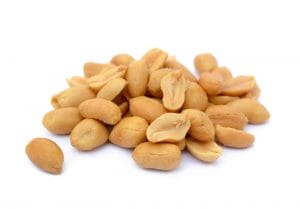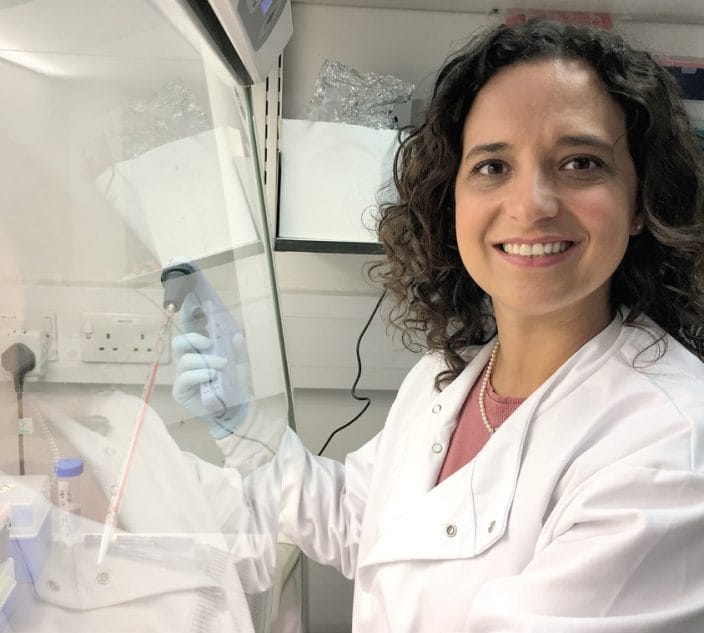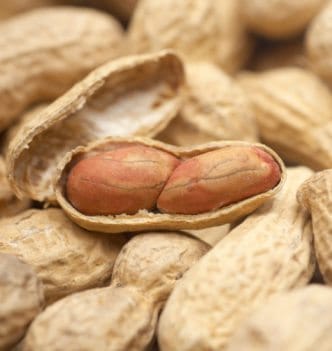 Photo: Getty
Photo: Getty The study was an extension of the Phase 3 PALISADE trial for Aimmune Therapeutics’ AR101 OIT therapy, which the FDA is currently reviewing for possible approval as a biologic drug.
At the end of PALISADE, a majority of participants could tolerate 600 milligrams (about two peanut kernels) of AR101 powder mixed into food on a daily basis. About 50 percent of the 372 participants in PALISADE’s treatment group could consume 1,000 mg of the powder in food (equivalent to three to four peanut kernels) with few or no symptoms.
However, in the extension study of 110 participants on peanut OIT, it became the majority (79.8%) who could tolerate 1,000 mg of the biologic product. As well, in an oral food challenge at the end of the 28 weeks, half (49%) of the participants tolerated twice that – 2,000 mg of AR101. Similar to PALISADE, mild adverse effects were common (52.7% of participants), though slightly less frequent than in the larger trial. Only 2% dropped out of the study extension.
“These findings demonstrate that AR101 treatment extended into the second year reduces adverse events, increases the ability to tolerate even high levels of exposure to peanut protein over time, and further modulates the immune response to peanut in most patients,” said Dr. Daniel Adelman, Aimmune’s chief medical officer.
AR101 is a carefully produced dose of powder with a specific amount of different peanut proteins in it. In Aimmune’s treatment protocol, the doses are mixed with food and start out tiny, at 1/2 a milligram, increasing gradually to reach a daily maintenance dose of 300 mg by six months. (In the trial, patients were tested beyond maintenance.)
European Phase 3 Results
The PALISADE continuation study as well as the results of Aimmune’s Phase 3 European study of AR101, called ARTEMIS, were presented this week at the European Academy of Allergy and Clinical Immunology in Portugal. In ARTEMIS, 175 participants, aged 4 to 17, were divided into two groups – the majority were treated with AR101 on a daily basis, while the others received placebo treatment.
The results were:
- 73.5% of the OIT treatment group tolerated 300 mg of peanut protein at the exit food challenge compared to 16.3% in the placebo study arm. (In PALISADE, 76.6% on treatment tolerated this level.)
- 68.2% of the treated patients tolerated 600 mg of peanut protein at the exit challenge, compared to 9.3% in the placebo group. (In PALISADE, 67% on treatment tolerated this level.)
- 58.3% of the treatment participants tolerated 1,000 mg (equal to 3 to 4 peanuts) at the exit challenge, compared to 2.3% in the placebo group. (In PALISADE, 50.3% on treatment tolerated this level.)
Quality of Life Improvements
At the EAACI meeting, researchers for Aimmune presented two quality of life studies related to peanut allergy and AR101 OIT treatment. Psychologist Dr. Audrey DunnGalvin presented research showing that peanut-allergic individuals commonly reported their lives being adversely affected by having to avoid peanuts, and by both reactions or the fear of reacting to peanuts. Those with the allergy and parents both experience feelings including anxiety, isolation and annoyance, and reported finding social activities restricted.
“Both our qualitative and quantitative research shows how fear, frustration and uncertainty are the hallmarks of living with peanut allergy, negatively affecting the day-to-day lives of both patients and their families,” said DunnGalvin, of University College Cork.
Aimmune also had new quality of life data on participants in the PALISADE extension trial, who were surveyed about life since treatment. The results of these questionnaires show the subjects, aged 4 to 17, reporting significant improvements across all areas of quality of life that were measured.
“We are encouraged that daily dosing with AR101 in the open-label extension trial resulted in important and clinically meaningful improvements in disease-specific quality-of-life measures in children with peanut allergy,” said Dr. Jonathan Hourihane, an investigator on the PALISADE trial and professor of pediatrics at University College Cork.
He said this shows treatment with AR101’s protocol “may help relieve the anxiety, fear and social limitations that are a current reality for individuals and families who live with peanut allergy.”





